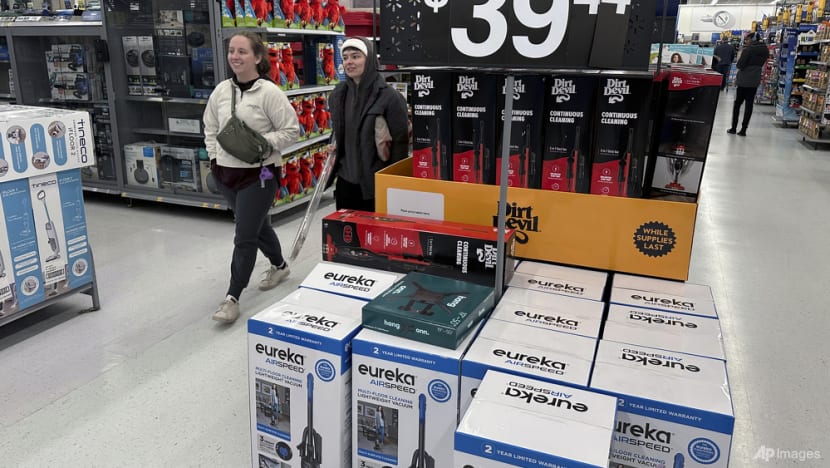Trump warns world's largest retailer Walmart: Don't raise prices due to tariffs, eat costs
WASHINGTON: US President Donald Trump on Saturday (May 17) ripped into Walmart, saying on social media that the retail giant should eat the additional costs created by his tariffs.
As Trump has jacked up import duties, he has tried to reassure a sceptical public that foreign producers would pay for those taxes and that retailers and automakers would absorb the additional expenses. Most economic analyses don't buy those claims and have warned that the trade penalties would worsen inflation.
On Thursday, massive US retailer Walmart warned that goods from bananas to children's car seats may increase in price.
Walmart is the world's largest retailer, and around 255 million people shop at its stores in the US and globally every week.

In a Truth Social post, Trump lashed out at the retailer, which employs 1.6 million people in the United States. He said the company, based in Bentonville, Arkansas, should sacrifice its profits for the sake of his economic agenda that he says will eventually lead to more domestic jobs in manufacturing.
“Walmart should STOP trying to blame Tariffs as the reason for raising prices throughout the chain,” Trump posted. “Walmart made BILLIONS OF DOLLARS last year, far more than expected. Between Walmart and China, they should, as is said, “EAT THE TARIFFS,” and not charge valued customers ANYTHING. I’ll be watching, and so will your customers!!!”
The threat by the Republican president reflected the increasingly awkward series of choices that many major US companies face as a result of his tariffs, from deteriorating sales to the possibility of incurring Trump's wrath.
Trump has similarly warned domestic automakers not to raise their prices, even though outside analyses say his tariffs would raise production costs.
So far, those tariffs have darkened the mood of an otherwise resilient US economy. The preliminary reading of the University of Michigan survey of consumer sentiment on Friday slipped to its second-lowest measure on record, with roughly 75 per cent of respondents “spontaneously” mentioning tariffs as they largely expected inflation to accelerate.
29 PER CENT PRICE INCREASE
In April, Walmart CEO Doug McMillon was among the retail executives who met with Trump at the White House to discuss tariffs. But the Trump administration went forward despite warnings and has attacked other companies such as Amazon and Apple that are struggling with the disruptions to their supply chains.
Walmart chief financial officer John David Rainey said he thinks $350 car seats made in China will soon cost an additional $100, a 29 per cent price increase.
“We’re wired to keep prices low, but there’s a limit to what we can bear, or any retailer for that matter,” he told The Associated Press on Thursday after the company reported strong first-quarter sales.
The administration recently ratcheted down its 145 per cent tariffs on China to 30 per cent for 90 days. Trump has placed tariffs as high as 25 per cent on Mexico and Canada due to illegal immigration and drug trafficking, harming the relationship with America's two largest trading partners.
There is a universal baseline tariff of 10 per cent on most countries as Trump promises to reach trade deals in the coming weeks, all while insisting he intends to preserve the tariffs as a revenue source. The framework agreement with the United Kingdom would largely keep the 10 per cent tariff rate in place.
Trump has also placed import taxes on autos, steel and aluminum and plans to do so on pharmaceutical drugs, among other products.
Disclaimer: Investing carries risk. This is not financial advice. The above content should not be regarded as an offer, recommendation, or solicitation on acquiring or disposing of any financial products, any associated discussions, comments, or posts by author or other users should not be considered as such either. It is solely for general information purpose only, which does not consider your own investment objectives, financial situations or needs. TTM assumes no responsibility or warranty for the accuracy and completeness of the information, investors should do their own research and may seek professional advice before investing.
Most Discussed
- 1
- 2
- 3
- 4
- 5
- 6
- 7
- 8
- 9
- 10